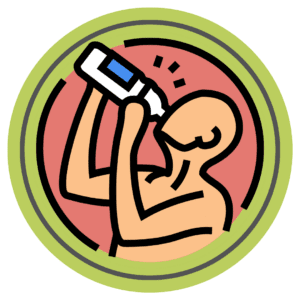Diabetes Mellitus Type 2 is a chronic medical condition characterized by insulin resistance and relative insulin deficiency. It's the most common form of diabetes, typically developing in adults, although it's increasingly seen in children and adolescents due to rising obesity rates.

In Type 2 Diabetes, the body's cells become resistant to the effects of insulin, the hormone responsible for regulating blood sugar levels. Over time, the pancreas cannot produce enough insulin to overcome this resistance, leading to elevated blood sugar levels.

A combination of genetics and lifestyle factors contributes to the development of Type 2 Diabetes. Major risk factors include obesity, a sedentary lifestyle, an unhealthy diet, aging, and a family history of diabetes.
Common symptoms of Diabetes Mellitus Type I include:






Some people may experience no symptoms initially and are only diagnosed through routine screenings or when complications arise.
Type 2 Diabetes is a progressive condition but can be effectively managed with lifestyle changes and medication. Early diagnosis and intervention can significantly reduce the risk of complications and improve quality of life.
For those facing Type 2 Diabetes, NES™ offers a range of natural and lifestyle-oriented solutions. We emphasize the importance of dietary modifications, weight management, and regular exercise to improve insulin sensitivity.
Our approach also includes education and support to empower patients to take an active role in managing their condition, with medication management as needed.

Acupuncture Session - $189.00
Acupuncture, Package of 4 - $636.00
Female Pellet Insertion Package - $518.00
Male Pellet Insertion Package - $744.00